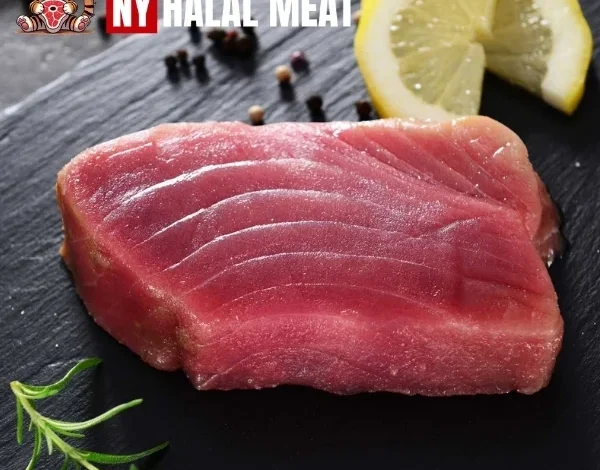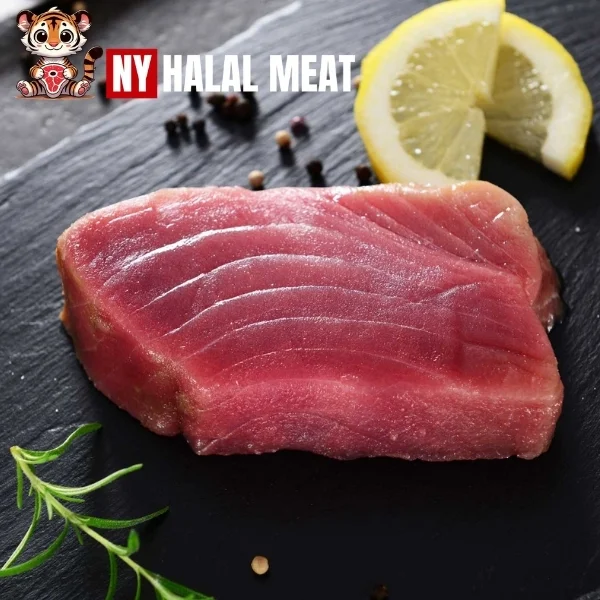
Is Tuna Halal?
What Does Halal Mean for Food?
Before diving into whether tuna is halal, it’s important to understand what “halal” means in terms of food. The term halal comes from Arabic and translates to “permissible” or “lawful.” For Muslims, halal food follows the rules outlined in Islamic law, or Shariah, ensuring that the food is prepared and consumed in a manner that is consistent with religious guidelines.
Halal guidelines encompass various factors, such as the source of the food, the way it is slaughtered (for meat), and whether it contains any prohibited (haram) ingredients like alcohol or pork. Seafood, however, has different rules compared to land animals, so it’s important to understand those nuances when determining whether a particular type of seafood, like tuna, qualifies as halal.
Is Tuna Halal?
The good news is that tuna is generally considered halal. Tuna is classified as fish, and according to most Islamic scholars, all fish are halal for Muslims to eat, as long as they are not contaminated by haram substances. The primary reason tuna is considered halal is that it is a type of fish, and the Qur’an, along with the Hadith (sayings of the Prophet Muhammad), permits the consumption of fish.
Unlike land animals, fish do not need to be slaughtered in the specific halal manner required for other animals. Halal slaughter involves specific rituals and prayers, but fish are an exception to this rule. As long as the fish is free from prohibited ingredients and is prepared in a halal-friendly way, it is considered permissible for Muslims.
However, it is important to note that while tuna is halal by nature, how it is prepared and served can affect its halal status. For example, if the tuna is cooked with non-halal ingredients, like alcohol or pork-based substances, it may no longer be considered halal. Therefore, the method of preparation is just as crucial as the type of fish.
Why Is Tuna Considered Halal?
Tuna is widely accepted as halal for a few key reasons:
- Type of Fish: As a species of fish, tuna naturally falls under the category of seafood that is considered halal. There are no specific prohibitions on tuna in Islamic law, making it a permissible food option for Muslims.
- No Ritual Slaughter Required: Unlike land animals, tuna does not need to undergo halal slaughter. The specific requirements for halal slaughter are not necessary for fish, which makes tuna an easy and convenient option for those following halal dietary guidelines.
- Preparation Matters: If tuna is prepared without any haram ingredients or cross-contamination, it remains halal. This includes ensuring that it is cooked separately from non-halal foods and does not contain any alcohol or pork products.
Considerations When Eating Tuna
While tuna is halal in its natural form, it’s important to be mindful of a few things when eating it, especially when dining out or buying processed products.
- Avoid Non-Halal Ingredients: One of the most significant factors to consider when eating tuna is the preparation method. If the tuna is cooked with non-halal ingredients, like alcohol-based marinades or sauces, it may no longer be halal. Always ask about the ingredients used in the preparation of your meal to ensure it complies with halal guidelines.
- Check for Halal Certification: When buying tuna, particularly processed or canned tuna, it’s a good idea to check for halal certification. Halal certification ensures that the tuna and all of its ingredients comply with Islamic dietary standards. Look for products that are certified by reputable halal certification bodies.
- Source of the Tuna: While the fish itself is halal, it’s important to ensure that the tuna is sourced responsibly. Some farmed fish may be fed non-halal substances, so it’s advisable to ask about the source of the tuna, especially if it’s not labeled halal.
- Cross-Contamination: If tuna is prepared in kitchens that also handle non-halal meats, such as pork, there is a risk of cross-contamination. This is another important consideration to ensure the halal integrity of the meal. You may want to inquire about the kitchen practices if you’re eating out or ordering from a restaurant.
Is Canned Tuna Halal?
Canned tuna is another popular option for those who enjoy tuna, but like fresh tuna, it’s essential to check the ingredients and preparation methods to ensure it meets halal standards. Many canned tuna products include added preservatives, oils, or sauces, and these may contain non-halal ingredients.
For example, some canned tuna may include flavorings or oils derived from alcohol-based substances, which would make it not halal. Always read the labels carefully to make sure there are no prohibited ingredients. Look for brands that offer halal-certified canned tuna to ensure you are consuming a product that adheres to halal requirements.
Conclusion: Is Tuna Halal?

In conclusion, tuna is generally considered halal. As a type of fish, it meets the basic requirements of halal food laws. Tuna does not require ritual slaughter, and there are no specific prohibitions on it within Islamic law. However, it is essential to ensure that the tuna is prepared properly and free from non-halal ingredients.
When buying tuna or eating it at a restaurant, always check for halal certification and inquire about the preparation methods to ensure the tuna meal remains halal. Whether fresh or canned, tuna is a halal-friendly option for those who follow halal dietary guidelines, as long as care is taken to avoid contamination with haram substances.





